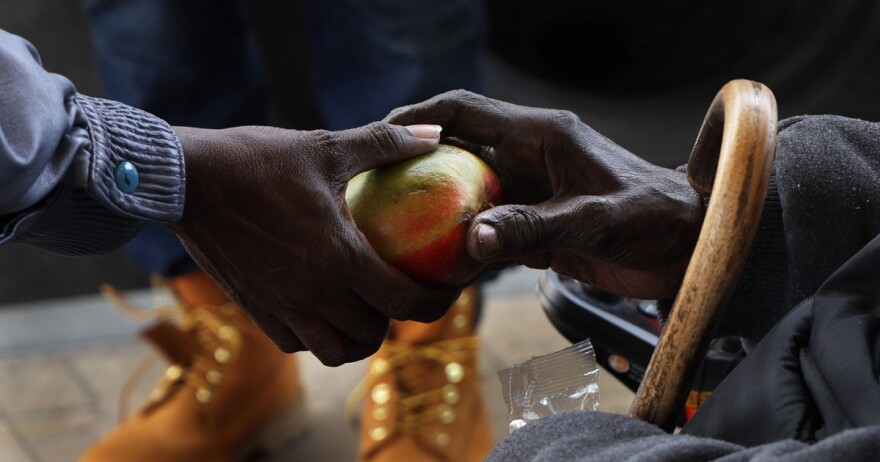What is the most effective way to make healthy food available in the city’s most impoverished neighborhoods? The city of Rochester is preparing to spend $3 million in federal COVID relief funds to find out.
The Rochester City Council is expected to vote Tuesday on funding for six organizations which will test out “innovative food models” for a period of 30 months. Those organizations vary from Taproot Collective, a grassroots network of community gardens, to St. Peter’s Kitchen, which operates a food pantry and provides prepared meals for people in need.
A total of 11 organizations sought to participate in the project in response to a call for proposals issued last year. The city’s Department of Neighborhood and Business Development will put up $343,400 toward the effort while American Rescue Plan Act funds comprise the remaining $3 million. The organizations in line to receive funding are:
- FoodLink, awarded $573,804
- Trillium Health, awarded $999,631
- Field and Fork Network, awarded $879,243.42
- St. Peter’s Kitchen, awarded $390,000
- Taproot Collective, awarded $373,989.69
- Cornell Cooperative Extension of Monroe County, award $126,577
Mayor Malik Evans’s office will oversee the project. Deputy Mayor Mike Burns described the program as a pilot run to see which projects are most effective.
He said that the city plans to develop performance indicators to monitor specific goals and results of the programs.
“ARPA dollars will run out at a point in time, but if we have data on which of these programs were effective in achieving the desired outcomes, we can use that data when we pursue other funding sources after ARPA expires,” Burns said.
In late 2023, the Children’s Agenda released a report based on a survey of Monroe County parents. The report said that 82% of Monroe County families making less than $50,000 could not afford fruits and vegetables on a weekly basis. Additionally, 78% were rationing food and 58% relied on food pantries to some degree.
The funding for the initiative is the city's latest effort in its ongoing push to evaluate Rochester’s food programs. In 2021, the city created a Food Policy Council to make recommendations around food distribution and accessibility in the city.
In 2022, the city allocated $5 million in federal COVID relief funds to healthy foods initiatives. The city worked with the Food Policy Council to develop the program to fund the food models project and is directing $3 million of those previously allocated funds to the effort.
Nathaniel Mich is executive director of Taproot Collective and a member of the Food Policy Council. He said the funding will help Taproot hire a second employee and improve the ability for the organization to provide improved technical support to community gardens.
Taproot currently has about 65 gardens participating in its network.
“We’ve helped some gardens with grant applications, we’ve had some gardens be hosts for our youth employment programming, where we’ve tested out some of these installations that we’re planning on being able to offer over the next couple years,” Mich said. “We want everyone to feel welcome in taking access to the support that we can offer.”
Mich said his goal for Taproot is to hit the size of the more robust Community Gardens of Western New York, which is based in Buffalo.
“I think Taproot has the potential to grow into that organization over the next couple years,” Mich said. "Short of the city deciding to set up a dedicated office of urban agriculture in city, which is an example from Boston, receiving this investment and building the capacity to meet that need is a big step forward.”



